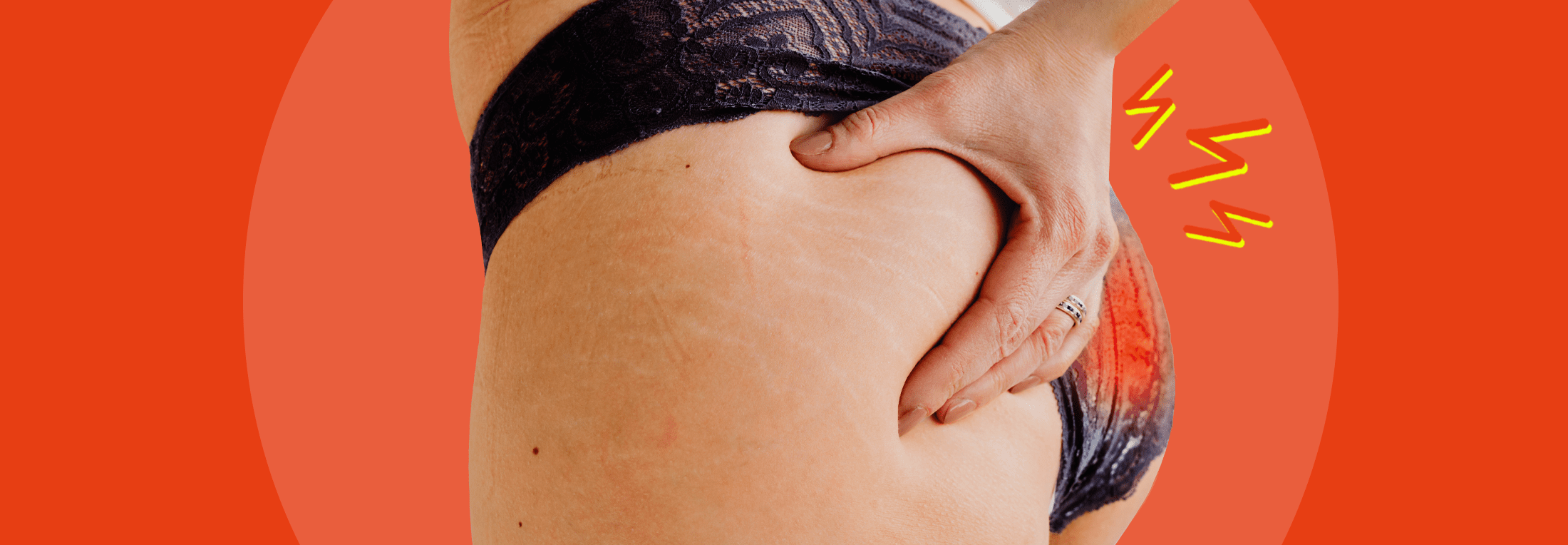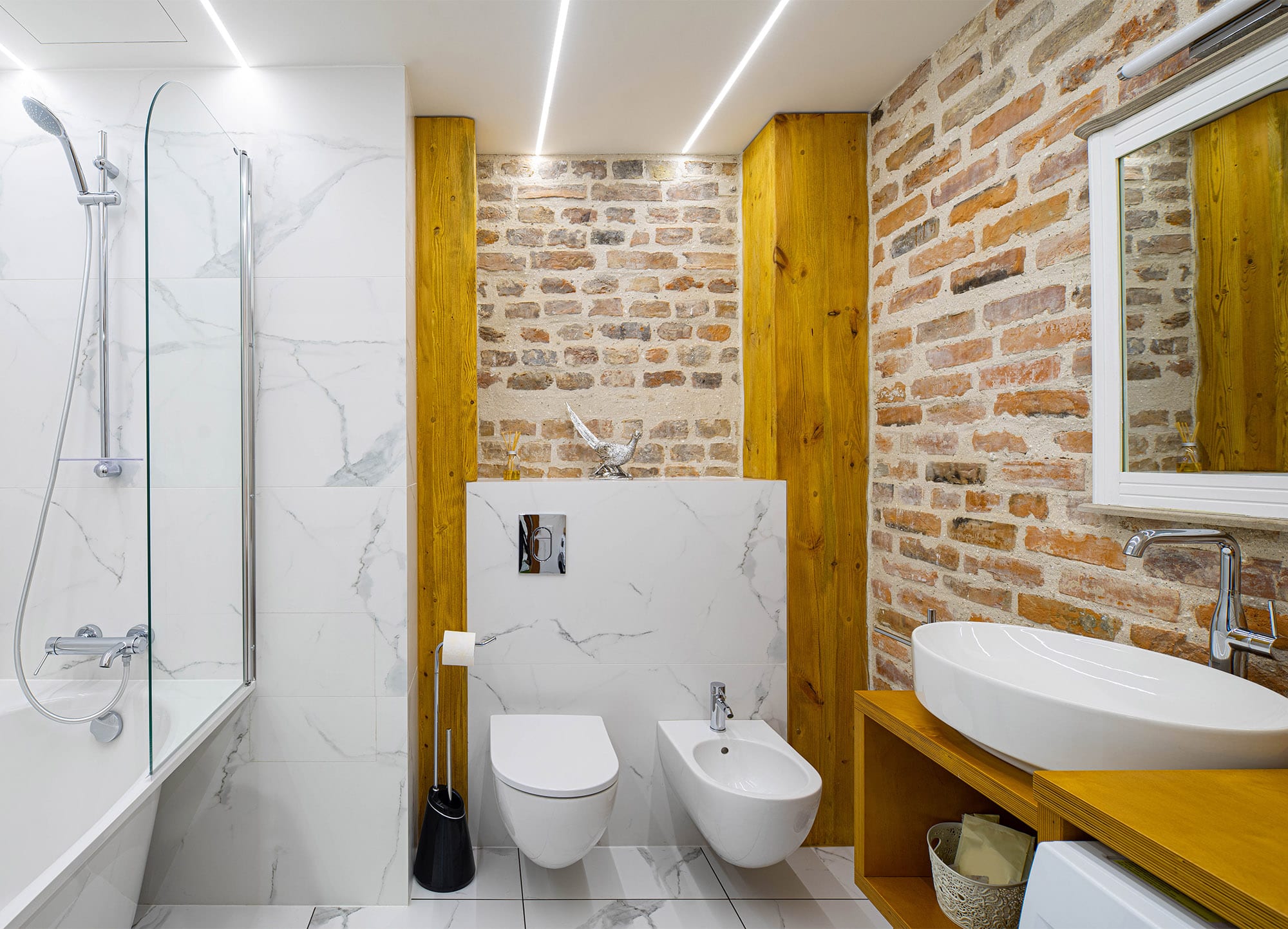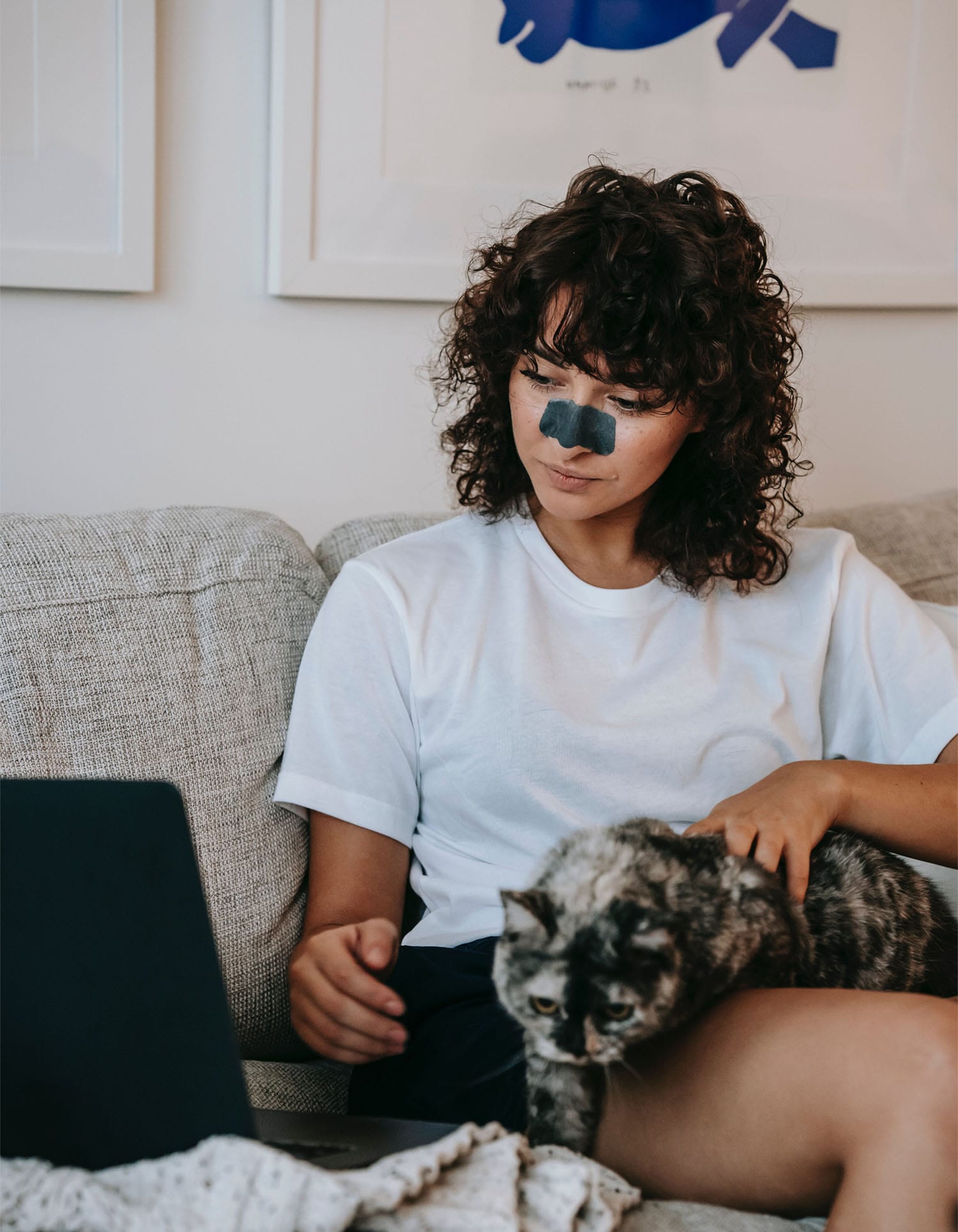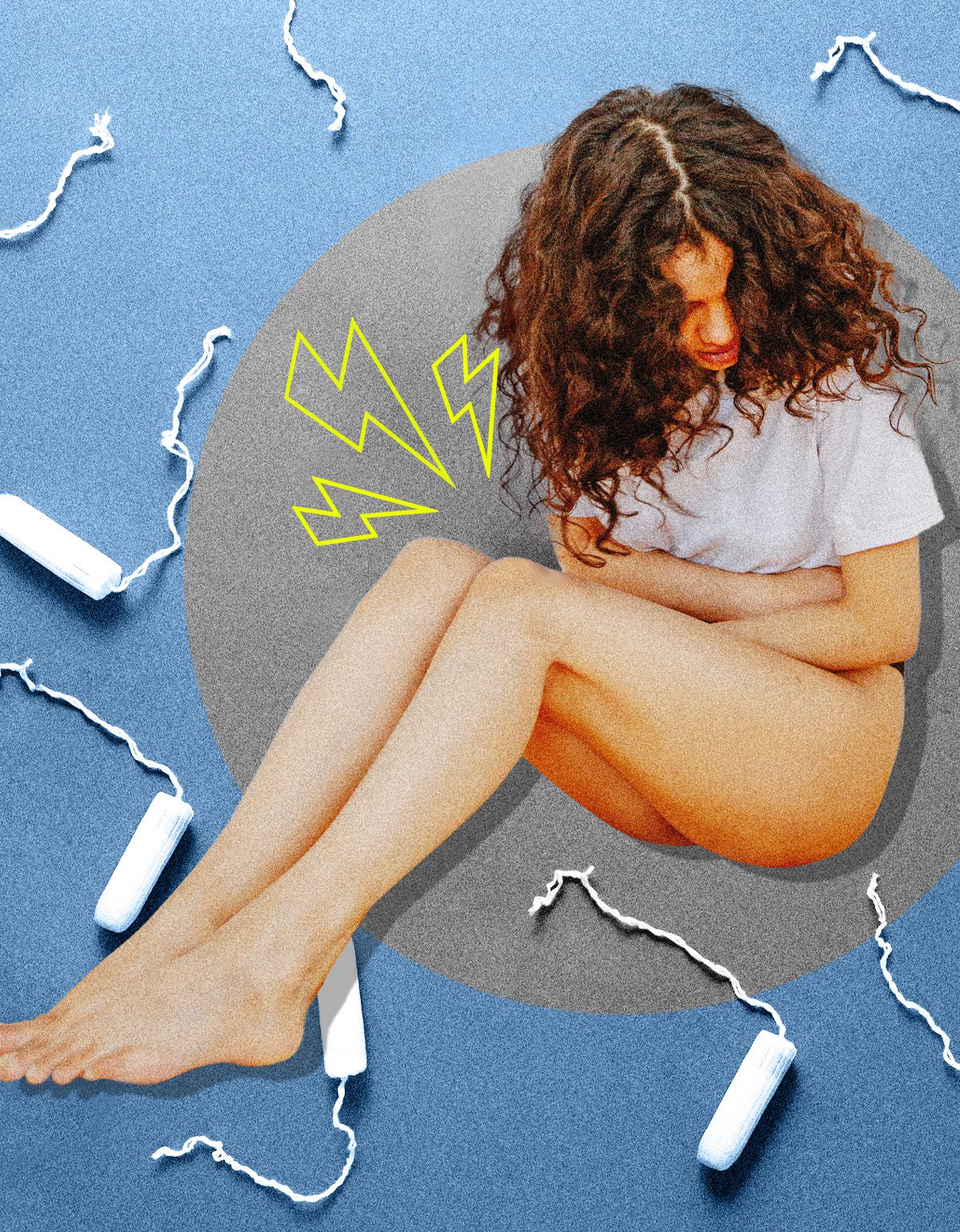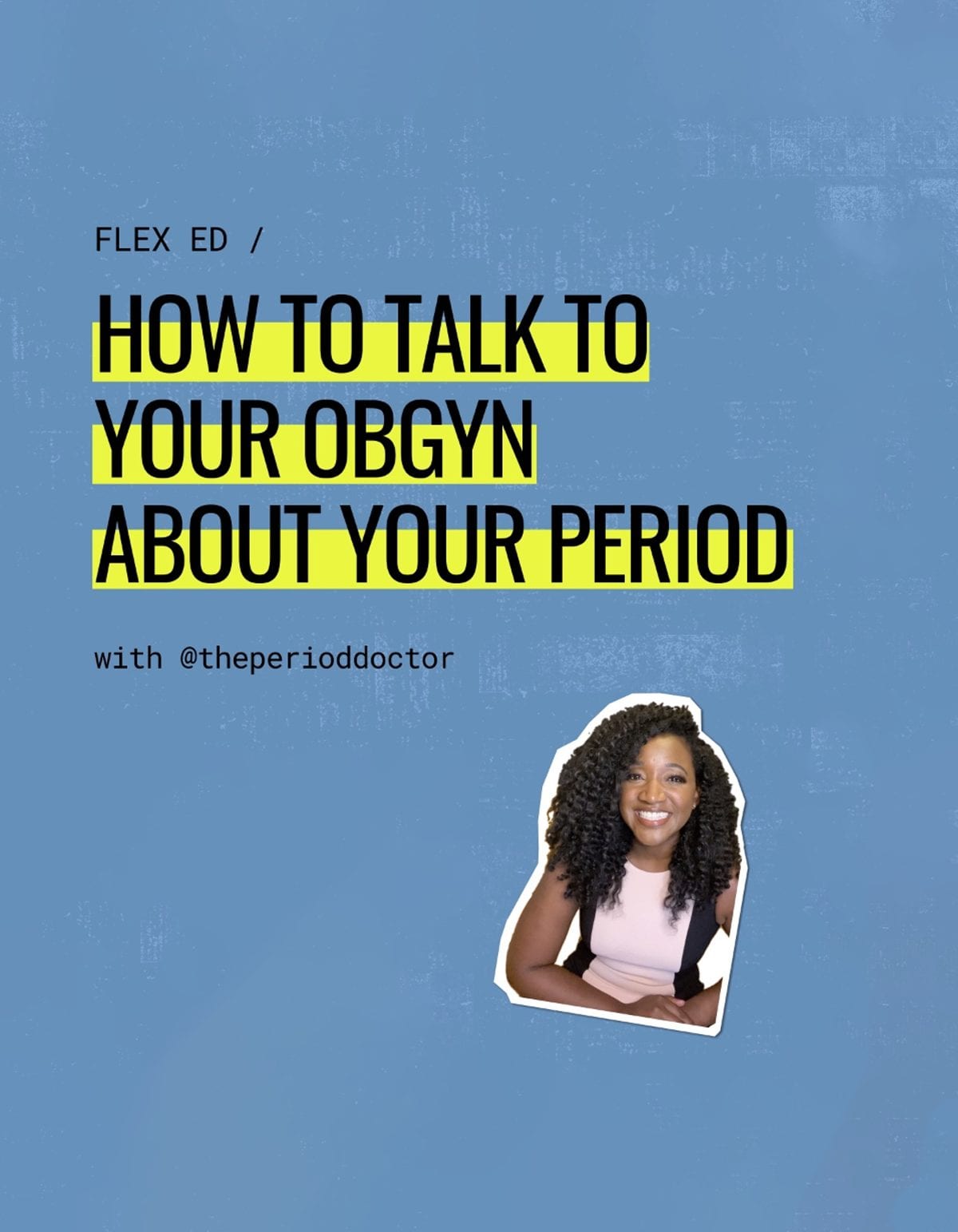They’re a real-life pain in the a$$. Sorry (not sorry) for the bad pun.
Let’s set the stage, shall we? It’s day one of your period, and you’re feeling crummy. You feel bloated, achy, craving chocolate chip pancakes, but also bizarrely nauseous. You’ve had appointments with the commode at regular, 30-minute intervals since waking up (okay, coffee was a poor choice) but it seems like your bum has finally waived the white flag.
All of a sudden, you feel a different kind of pain in your rear end. This is not the type that sends you running to the toilet. More like your uterus has taken a little journey out the back door, got locked out, and is now using a pickaxe to try to break back in. The elusive (or not-so-elusive) period butt cramps, in all their painful glory.
If you’ve ever experienced the feeling before, you know how odd and alarming it can be. But rest assured that butt cramps during your period are actually totally normal and more common than you might think. Here’s the low-down:
What causes butt cramps on your period?
Period cramps: It’s an unpleasant phenomenon that nearly all people who menstruate experience at some point during their life. Most of us know them as that deep, achy throb that starts in the lower abdomen, just below the belly button.
Menstrual cramps are what move your menstrual blood from your uterine lining out into the world—where it’s usually collected by your tampon, menstrual disc or cup, period underwear, or (on an unlucky day) your clean, white sheets. You might feel them all over your abdomen, but they start at the uterus. Triggered by prostaglandins, your uterus contracts and squeezes the menstrual fluid—containing blood, endometrial tissue, and various bacteria—through the cervix and into the vaginal canal.

Prostaglandins are hormone-like substances that the body produces to induce uterine contractions, among other things. They’re released at the start of your period and can sometimes also trigger contraction and movement in other areas of your pelvis… including your intestines and colon! Thus, the notorious period poops we mentioned earlier.
In short, prostaglandins are apt to cause bowel changes. They can also exacerbate any preexisting bowel issues like IBS (Irritable Bowel Syndrome).
You might still wonder, “why do I get cramps in my buttocks during my period?”. It’s not uncommon to feel period cramps extend throughout your lower back, down your legs, and into your stomach, pubic and pelvic area. You can also experience them in your gluteal muscles and anal region. Prostaglandins have a tendency to go a little rogue, affecting parts of your body beyond just your uterus.
Keep in mind that some people have naturally higher levels of prostaglandins than others. Hormonal balance, diet, and exercise affect their levels, too.
When people say they experience butt cramps during their period, they’re usually referencing one of two things:
- Period butt cramps in the anal canal or rectal area (a.k.a. butthole cramps,rectal cramps or proctalgia fugax)
- Period butt cramps in the gluteal muscles
Both are normal and, while strange and uncomfortable, butt cramps during your period typically aren’t a cause for alarm.
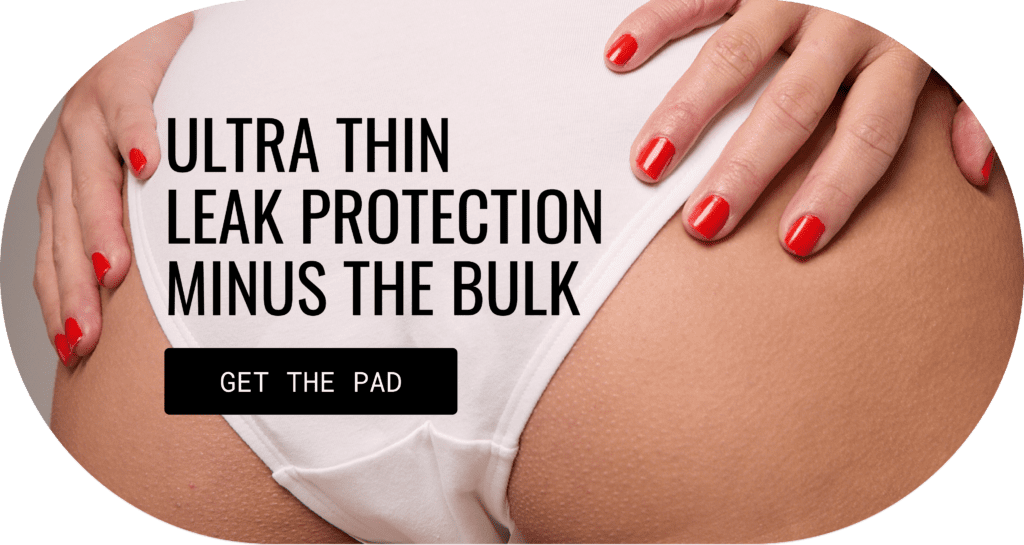
How common are butt cramps during period?
There haven’t been any sizeable clinical studies done on anal, rectal, or gluteal cramping during menstruation as it pertains to people without chronic conditions. But we do know, anecdotally, that it’s a common phenomenon. The keyword “butt cramps during period” is searched on Google upwards of 700 times each month and there are thousands of hits for the query on TikTok.
We do, however, have data on other GI-related symptoms and their prevalence during menstruation. One 2014 study found that approximately 73% of menstruating people “experience at least one of the primary gastrointestinal (GI) symptoms either before or during menstrual bleeding,” with abdominal cramps and diarrhea standing out as the most common. 1
TL;DR? If you experience butt cramps during your period AND abdominal cramps, you’re certainly not alone. It is not uncommon for individuals to experience both butt cramps and abdominal cramps during their menstrual cycle. These symptoms can be attributed to the contractions of the uterus, which can radiate pain to surrounding areas such as the lower back and buttocks. Additionally, hormonal changes and prostaglandin release during menstruation can contribute to increased muscle contractions and discomfort in various parts of the body.

How to get rid of period butt cramping
The key to getting rid of bum cramps during your period is pretty similar to getting rid of any other type of menstrual pain or discomfort. Here are our top tips:
1. Take ibuprofen (or another NSAID) to block prostaglandins
2. Another great way to stop cramps in buttocks during your period? Drink TONS of water to keep your muscles (and internal organs) hydrated
3. If you can, try to do some light exercise or stretching to generate prostaglandin-fighting endorphins and limber up
4. Orgasms are another fantastic endorphin creator!
5. Get plenty of rest: Now is not the time to skimp on sleep
6. If you’re someone who suffers from muscle spasms rather often, a warm bath or a heating pad might help relax your muscles, including the muscle tension in your buttocks
Check out some other period symptoms, PMS and period pain hacks here and here.
If the butt cramps persist or are severe, it’s essential to consult with a healthcare provider to rule out any underlying conditions that may be causing the discomfort.
Other symptoms of period butt cramps (and when to talk to a doctor)
If your butt pain is severe or gets worse, talk to a healthcare provider. In rare circumstances, severe pain during menstruation can be a sign of an underlying condition like endometriosis. Also, take note if you are experiencing severe anal pain, diarrhea, constipation, or another sudden change in bowel habits that goes beyond the norm during menstruation.
For people with an existing bowel issue such as IBS, rectal pain during your period may be even more likely.
A 2002 study found that “rectal sensitivity increased at mensesAnother term for menstrual flow (commonly known as your period). compared with all other phases of the cycle” in women with IBS symptomatology.2 This study also concluded that “women with IBS respond differently to fluctuations in their sex hormonal environment or its consequences compared with healthy females.”
In other words, hormonal changes and fluctuations may have an impact on IBS. If this is something you’re dealing with, be sure to talk to your doctor about specific approaches and treatments for exacerbated IBS symptoms during your period. Your healthcare provider can offer you a tailored approach and the appropriate treatments to manage these symptoms effectively.
In addition to medical interventions, maintaining a healthy diet, staying hydrated, managing stress levels, and incorporating regular physical activity into your routine can also help alleviate IBS symptoms during menstruation. It is crucial to prioritize self-care and seek professional guidance.

This article is informational only and is not offered as medical advice, nor does it substitute for a consultation with your physician. If you have any gynecological/medical concerns or conditions, please consult your physician.
© 2024 The Flex Company. All Rights Reserved.
- Bernstein, M. T., Graff, L. A., Avery, L., Palatnick, C., Parnerowski, K., & Targownik, L. E. (2014). Gastrointestinal symptoms before and during mensesAnother term for menstrual flow (commonly known as your period). in healthy women. BMC women’s health, 14, 14. https://doi.org/10.1186/1472-6874-14-14[↩]
- Houghton, L. A. (2002). The menstrual cycle affects rectal sensitivity in patients with irritable bowel syndrome but not healthy volunteers. Gut, 50(4), 471–474. doi:10.1136/gut.50.4.471 [↩]
